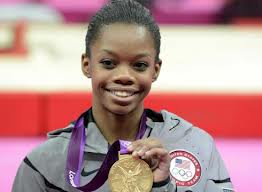
As we power on our laptops, open our Internet browser, and briefly skim through the day’s headlines, we seem to be confronted by one common trend — the public’s love of gossip. Gossip has created a generation with a poignant addiction to labeling and judging others.
I’m not talking about stereotypes, either. What we read, what we listen to, what we see –it all seems to be indicative of a society of snap judgments.
In the last couple weeks, as the Olympics were in full swing, our increasing attentiveness to the athletes behind the gold medals kept media outlets busy feeding our hunger to learn more about their personal lives.
Few gained more attention then all-around gold medal-winning gymnast Gabby Douglas. However, it wasn’t her historic achievement that had us interested — it was the debate behind her hair.
Twitter seemed to be ablaze as thousands of tweets defended Douglas from those criticizing her hair during competition. “Gabby Douglas hair” began trending shortly after she had won her individual gold. Days after, the world was reading hundreds of front-page articles surrounding the gymnast’s hair preferences, while in some cases, her actual Olympic success could be found in pages farther down. What was most unnerving about the attention her hair received was the effect it had on her image.
I asked my friend what she thought about all the madness behind Gabby Douglas, and she looked at me with a quizzical look. “Is that the one with the hair?” she asked.
It’s almost frightening to think that “the hair girl” could become a synonym for the first African-American all-around gold medalist in gymnastics.
It’s not just Douglas, either. All of our celebrities, athletes, and icons seemed to have been given a label.
It’s a fact that Justin Bieber and the British boy band One Direction are generic commercial singers for boppy, pre-teen, hormonal girls. And Lebron James is the sports world’s most revered backstabber who, even after getting his first NBA championship ring, will choke in the fourth quarter and is far behind NBA greats.
Yes, these judgments have always been present. We are human, after all, and it’s our instinct to make evaluations of others, but it seems this empire of judgment has taken on a life of its own due to one thing: social media.
It seems today that much of our impressions of others is based on social media perception.
With almost 200 million tweets posted on Twitter everyday, and Facebook users spending an average of 15 hours per month in Facebook, social media plays a pivotal role in society, and most importantly in what we think.
Our use of technology and profile-creating seems to have come to haunt the generation that created it just as severely.
Girls are expected to fit one body type. Magazines covers and ads showcase models of what have become the perfect profile — what our generation sees as perfection. Tall, thin, glossy hair, the perfect face structure and a blinding smile.
This trend is common in boys, as well. According to the DoSomething campaign, it’s believed that 45 percent of Western men are unhappy with their bodies, compared to the 25 percent recorded 25 years ago.
Since we spend most of our time online, we become susceptible to what we read and what we see. Without even realizing it, we keep track of the pictures and ads we pass over, and the pressure society has put on individuals to search for perfection.
Gabby Douglas — who seemed to be made of grace and glory — had her success tarnished because of the way a few viewed her image. Lebron James, who seemed undefeatable after finally earning a championship ring, was laughed at for just that — he only had one ring in his repertoire.
I remember reading an anonymous post online once that pointed out the irony in our society. It’s funny how we’ve become a society centered around the definition of perfection, yet our flaws have become what truly define us.






